- Details

Today, CMIP is highlighted at the ESA’s Living Planet Symposium 2022 where CMIP’s evolution, its continued policy decision support, and the challenges and opportunities at the interface of the Earth Observation and modelling communities will be discussed.
To learn more, click the heading above.
- Details

- Details
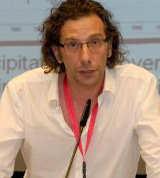
- To read more. click here.
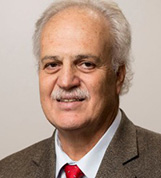
- To read more, click here.
- Details
WCRP is seeking an intern, commencing 1 September 2022 for a period of 12 months, in Geneva, Switzerland. The deadline for applications is 31 May 2022. For further information and to apply, click the heading above.

- Details

- To read the article, click here.
- Details
We warmly invite you to attend the next webinar in the 'Tipping elements, irreversibility, and abrupt changes in the Earth system' Discussion Series. On 12 May 2022 at 10:30 CEST, we will explore tipping towards positive social change with two talks:
- Social tipping dynamics – Ilona Otto (University of Graz)
- What are the sensitive intervention points needed to make the green energy transition happen as quickly as possible? – Doyne Farmer (University of Oxford)
To register, please see the Discussion Series website.

- Details
The first WCRP My Climate Risk Lighthouse Activity Hub Webinar will take place on 12 May 2022 (16:00 IST, 12:30 CEST), organized by the Regional Hub for the Hindu Kush Himalaya under ICIMOD’s Himalayan University Consortium (HUC) and investigating the gap between global models and local decision-making, especially in the context of 'uncertainty'. To find out more, click the heading above.

- Details

The second Model Hierarchies workshop will be held 29 August - 1 September 2022, as a 3.5-day in-person (covid permitting) workshop at Stanford, CA (USA). As last time, we solicit talks on the design and use of modeling hierarchies in all aspects of Earth system science, covering the major climate system components -- atmosphere, ocean, land, cryosphere, biosphere -- but this time also underline our interest in exploring the ways in which such models are connected to the downstream uses of this data in the study of climate impacts. The workshop will be structured around talks in a single-session format, interspersed with poster sessions during the recesses. There will be plenty of time in between sessions for collaborative and social discussion.
- Deadline for abstract submission and application for financial support is extended to 15 May 2022, don't miss the date!
- To visit the workshop website and to register and submit your abstract, click here
- Details

The International CLIVAR Climate Dynamics Panel (CDP) plans to organize workshops annually. The first CDP annual workshop will target our understanding of internal and externally forced variability in the climate system, their interaction on decadal timescales and longer, and the effects of variability on extreme events. We invite submissions on the topic with the aim of tackling the following overarching questions:
- How to isolate the relative contributions of external and internal variability to observed decadal and longer variability?
- How do the various external forcings modulate internal variability?
- Progress in narrowing observational and modeling uncertainties in external and internal variability
- Effects of external and internal variability on extreme events
The workshop will consist of 6 weekly 2-hour sessions from September 12th to October 21st, 2022, including 4 oral sessions, 1 poster session and 1 final panel discussion.
- Abstract submission deadline: June 24, 2022
- Registration deadline: September 1, 2022
- To know more and register, visit the event website
- Details

The second GCOS Climate Observation Conference (17-19 October 2022, Darmstadt, Germany) will focus on activities and solutions that help to achieve a fully implemented, sustainable, and fit for purpose global observing system for climate. The Conference will also provide the occasion to celebrate GCOS 30th Anniversary and take stock of the progress achieved by the global observing community in the last three decades. The Conference will be in person, even though hybrid options will be made available too.
Abstracts can be submitted online for either an oral or poster presentation. The abstract submission deadline is 1 June 2022: only 6 weeks left!
- Deadline for registration: 23 September 2022
- For more information, please visit the conference website
- Details

The second Model Hierarchies workshop will be held 29 August - 1 September 2022, as a 3.5-day in-person (covid permitting) workshop at Stanford, CA (USA). As last time, we solicit talks on the design and use of modeling hierarchies in all aspects of Earth system science, covering the major climate system components -- atmosphere, ocean, land, cryosphere, biosphere -- but this time also underline our interest in exploring the ways in which such models are connected to the downstream uses of this data in the study of climate impacts. The workshop will be structured around talks in a single-session format, interspersed with poster sessions during the recesses. There will be plenty of time in between sessions for collaborative and social discussion.
- Deadline for abstract submission and application for financial support : 30 april 2022
- To visit the workshop website and to register and submit your abstract, click here
- Details

We are delighted that the Summary for Policymakers of the IPCC Working Group III report, Climate Change 2022: Mitigation of climate change was approved on April 4 2022. This is a massive undertaking, incolving 195 member governments of the IPCC, through a virtual approval session that started on March 21. It is the third instalment of the IPCC’s Sixth Assessment Report (AR6) and it makes clear that there are options in all sectors to halve emissions by 2030 but that this depends on major shifts in a number of key sectors including the energy and industry sectors. The report also makes it clear that the next few years are critical and that clear signalling from governments and the international community, including a stronger alignment of public sector finance and policy, will be required to effectively mitigate and adapt to climate change impacts - which is critical to sustainable development.
- Details

The Southern Ocean Action Plan will be launched on 12 April 2022 at 12:00 UTC. The launch event will present the content of the Action Plan and the future of the Southern Ocean community’s engagement in the United Nations Decade of Ocean Science for Sustainable Development. The Action Plan aims to mobilise the Southern Ocean community and inspire stakeholders to seek engagement and leverage opportunities to deliver innovative solutions that maintain and foster the unique conditions of the Southern Ocean. This framework provides an initial roadmap to strengthen links between science, industry, and policy, as well as to encourage internationally collaborative activities in order to address existing gaps in our knowledge and data coverage. You can find out more on the event page.
- Details

The second GCOS Climate Observation Conference (17-19 October 2022, Darmstadt, Germany) will focus on activities and solutions that help to achieve a fully implemented, sustainable, and fit for purpose global observing system for climate. The Conference will also provide the occasion to celebrate GCOS 30th Anniversary and take stock of the progress achieved by the global observing community in the last three decades. The Conference will be in person, even though hybrid options will be made available too.
- Deadline for abstract submission: 1 June 2022
- Deadline for registration: 23 September 2022
- For more information, please visit the conference website
- Details
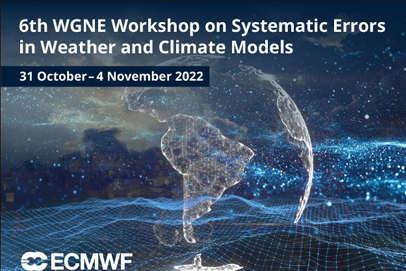
The WCRP Working Group on Numerical Experimentation (WGNE) organises a hybrid workshop on systematic errors in weather and climate models, hosted by the European Centre for Medium Range Weather Forecasts (ECMWF), in Reading (UK) on 31 October - 4 November 2022. The workshop brings together a wide range of experts on simulating the Earth System including atmosphere, ocean, waves, land-surface, atmospheric composition, cryosphere, and associated disciplines to advance the understanding of systematic simulation errors at all timescales.
Early career researchers from selected countries will be able to enter a competition for best abstracts for oral presentations. The World Meteorological Organization (WMO) is pleased to offer funding for travel to ECMWF (UK) to the winners of the competition. Please see https://events.ecmwf.int/event/241/page/122-abstract-competition for details.
- Details
Tipping Elements, Irreversibility, and Abrupt Change Discussion Series
7 APRIL 16:30 - 18:00 CEST
We invite you to join AIMES, the Earth Commission, Future Earth, and WCRP Safe Landing Climates Lighthouse Activity for an upcoming event in our discussion series aimed at advancing knowledge on tipping elements, irreversibility, and abrupt changes in the Earth system. To register for the event, please see the event site.
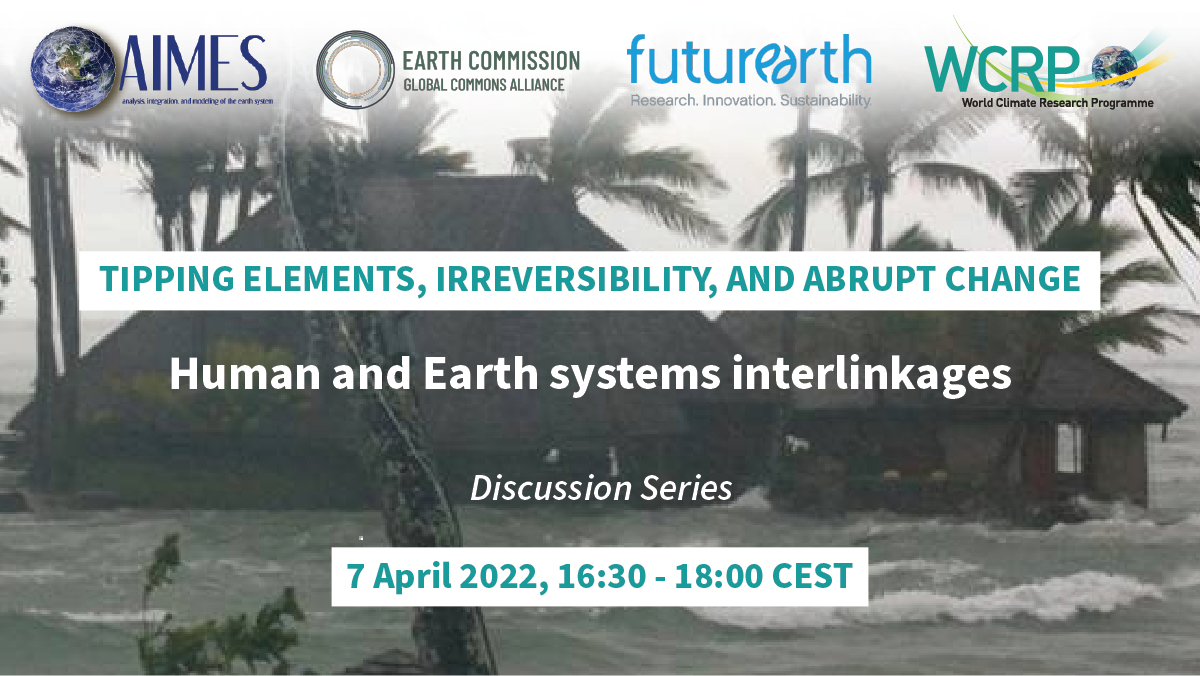
- Details
A virtual summer school on 'Attribution, causality, and decision-making' in climate variability and change will run from 6-10 June 2022. Topics will include event attribution, trend attribution, philosophical issues in attribution, causality, and decision-making. The summer school is run by the joint Reading-Imperial Ph.D. programme, “Mathematics of Planet Earth,” and is co-sponsored by WCRP, through the My Climate Risk (MCR) Lighthouse Activity, and by the Walker Institute (a planned MCR hub).
A more detailed syllabus and information on how to apply can be found on the summer school webpage. The deadline for applications is 2 May 2022.

- Details

The main session of the 43rd Joint Scientific Committee meeting (JSC-43) will be held virtually during 27 June- July 1, with a JSC-only meeting to be held around a week later.
Attendance at this virtual JSC-43 is by invitation only. Should you wish to attend please contact Mike Sparrow (
For further details see: https://www.wcrp-climate.org/jsc43-about.
- Details
The WCRP My Climate Risk Lighthouse Activity invites interested researchers to nominate themselves for its Scientific Steering Group (SSG), which is responsible for the overall scientific direction of the activity. To find out more and to apply, please see the open call webpage.
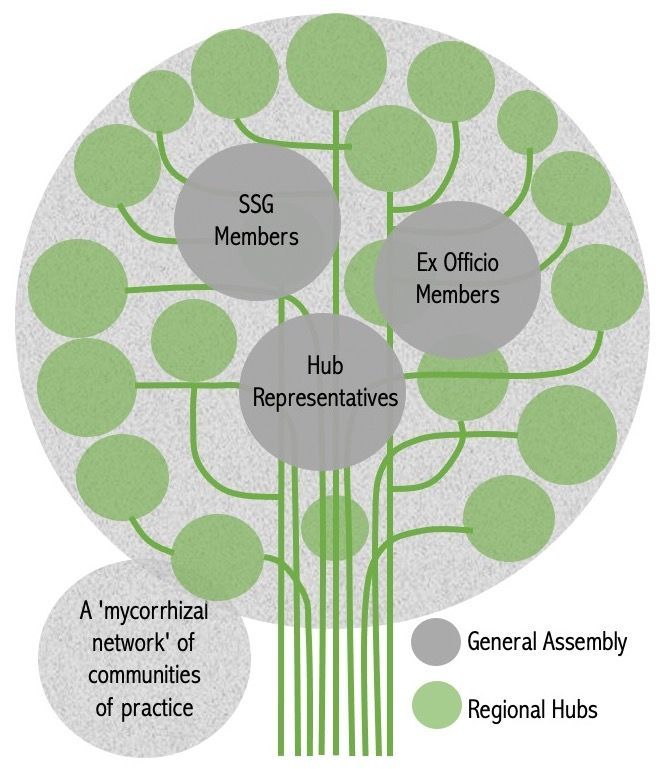
My Climate Risk Structure
- Details
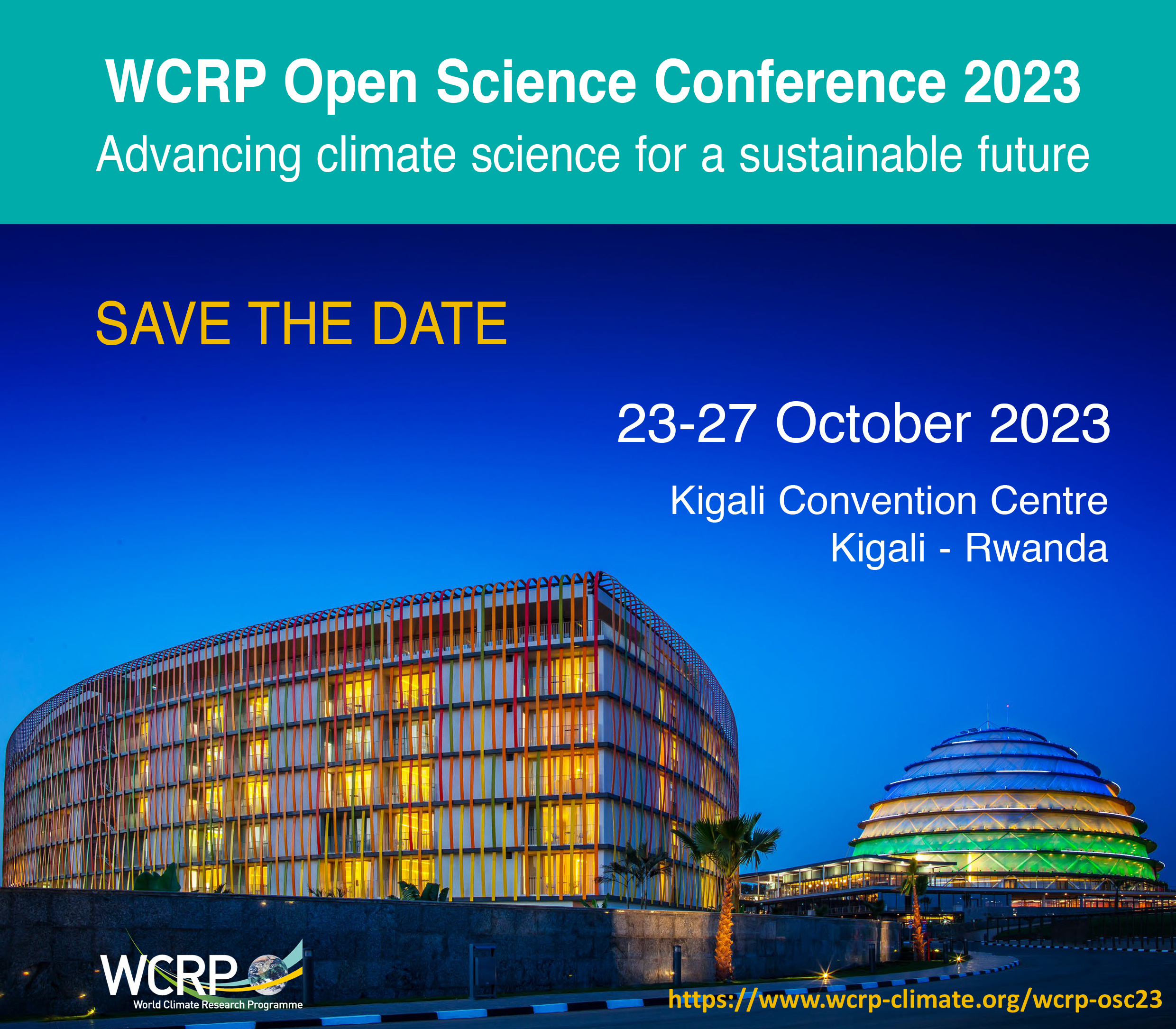
WCRP is delighted to announce that the WCRP Open Science Conference (OSC) 2023 (#WCRP2023) will take place in Kigali, Rwanda on 23-27 October 2023, at the Kigali Convention Centre.
The Rwanda Environment Management Authority (REMA), on behalf of the Government of Rwanda, provided a strong proposal to host the WCRP OSC 2023 in Kigali and will support WCRP to deliver a true hybrid event. This event at the heart of the African continent will allow strong engagement with research communities, stakeholders and practitioners in Rwanda and the region. This will be facilitated by joint efforts with local partners, such as the Rwanda Meteorology Agency and the University of Rwanda.
The WCRP OSC 2023 Scientific Organising Committee has already started to discuss the format of the conference to ensure that it will foster future climate science leadership, through workshops, public exhibits, forums, and other associated events. A fundraising drive is also in place, as well discussions on innovative ways to deliver effective remote participation options to ensure inclusion and engagement while minimizing our carbon footprint.
The path is set! All roads lead to Kigali!
To know more click here.
- Details
The main goal of the workshop will be to identify the key contemporary challenges for climate modelling and to plot a course forward from present practices that will allow us to rise to major new challenges for climate research by exploring opportunities for climate modelling that exist now and into the coming decades. Major new modelling challenges arise from the need to provide ever more detailed and actionable climate change information to society and decision makers whilst continuing to support advancements in climate science, including improved process understanding and modelling developments.
To know more click the heading above.
- Details

SPARC (Stratosphere-troposphere Processes And their Role in Climate) is holding its 7th General Assembly (GA) from 24th to 28th October 2022. The format of the SPARC GA will be different from past GAs, as it will be on a multi-hub basis with three locations (hubs) confirmed at the National Center for Atmospheric Research (NCAR), in Boulder, USA, the European Centre for Medium-Range Weather Forecasts (ECMWF), in Reading, UK, and the First Institute of Oceanography (FIO) in Qingdao, China.
- Abstract submissions and travel support requests are now open.
- For more information and submissions, visit the conference webpage and announcement.
- Details

We congratulate the winners of the WMO Prize Challenge to improve Sub-seasonal to Seasonal Predictions using Artificial Intelligence!
To know more click the heading above.
- Details
On this International Women’s Day, we have spoken to some of our researchers from around the world to find out their views on ways that our institutions and programs like WCRP can help make a difference for women aspiring to have a productive and fulfilling career in climate science. To hear what they have to say, click the heading above.
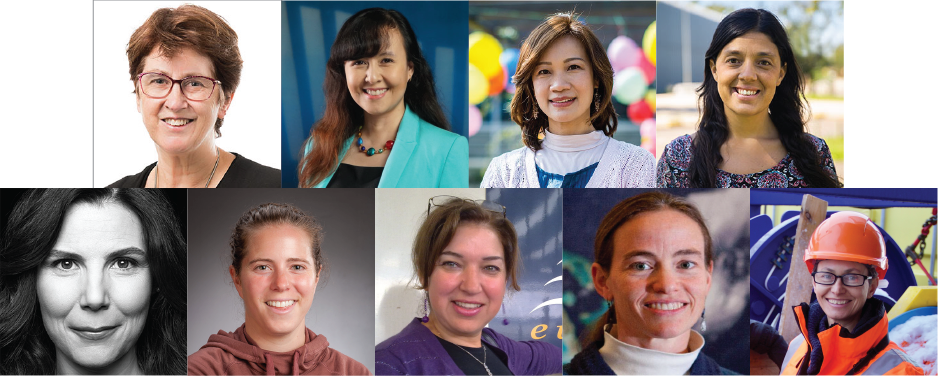
- Details
March 2022
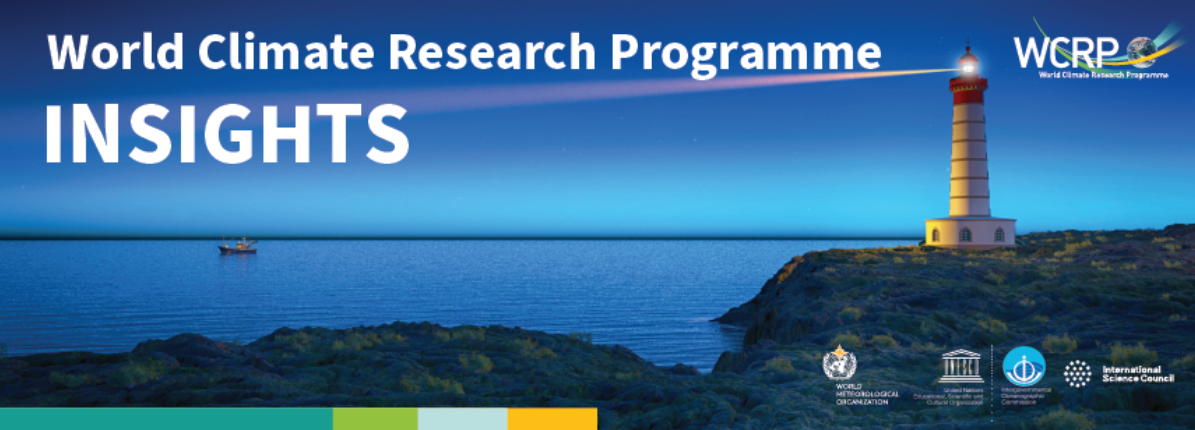
The future of CMIP and climate modelling
In this issue of World Climate Research Programme (WCRP) Insights, we focus on the future of climate modelling. There is an ever-increasing demand on climate models to answer questions about what our climate will be like in the next years, decades and centuries. In 2022, the WCRP community will be looking at the best way forward to ensure that we are ready to answer those questions to our best ability.

